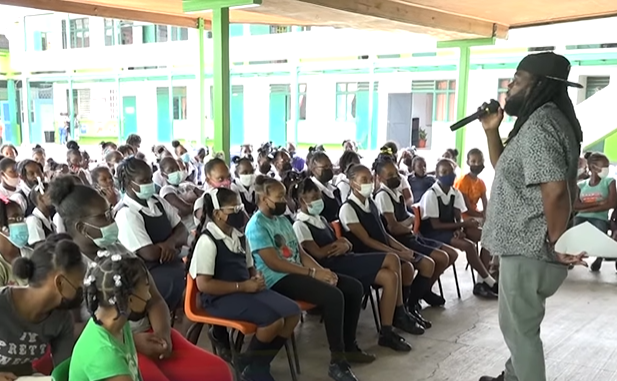

A study on juvenile delinquency in Saint Lucia is challenging long-held assumptions about the causes of youth crime on the island. Dr Montelle Felix, a criminologist and Police Constable with the Royal Saint Lucia Police Force (RSLPF), has found that peer influence and weakened family bonds are more significant contributors to juvenile crime than poverty.
In an interview with St Lucia Times, Dr Felix urged a shift in how the island addresses youth crime. He stressed the importance of early intervention over traditional reactive policing and called for measures that focus on strengthening family ties, improving peer relationships, and providing positive role models before young people fall into criminal behaviour.
Saint Lucia’s crime challenges are well-documented. As of November 2024, the RSLPF had recorded 1 699 offences, surpassing the 1 643 total in 2023. Even more troubling, statistics from InsightCrime.org show that the island surpassed its 2023 record for the number of killings, with two more murders in 2024, bringing the total to 77. The majority of these victims were between the ages of 21 and 30.
In his 2023 research paper, The Impact of Social Learning and Social Bonds on Juvenile Delinquency: An Empirical Study of Secondary School Students in Saint Lucia, Dr Felix sought to identify “the criminogenic risk factors for juvenile delinquent behavior in Saint Lucian adolescents”, using a sample of first and second form secondary school students.
The researcher, who specialises in law enforcement decision-making, explained that his motivation for conducting the study stemmed from observing the ongoing rise in youth-related crimes and the need for evidence-based solutions.
His “most striking finding” was that peer influence was the most significant factor contributing to delinquent behaviour, even outweighing the impact of socioeconomic challenges.
“In Saint Lucia, youth crime often results from exposure to negative peer models combined with weak attachments to positive social structures, thereby reinforcing delinquent behaviours,” said Felix, who holds a PhD in Crime Prevention and Corrections from Central Police University.
“Poverty is undoubtedly influential, but the findings of my research indicate that peer pressure and weakened family and community bonds often exert a more immediate and direct impact. Essentially, economic hardship sets the stage, but it is the social environment and relationships that significantly trigger delinquent behaviour.”
In response to these findings, Dr Felix advocates for a shift in societal approaches to addressing juvenile crime. Like many fellow researchers, he supports the use of the “carrot” rather than the “stick” in dealing with the misbehaviour of minors.
Dr Felix recommends that schools implement screening programmes to identify at-risk youth early and foster environments that promote positive behaviour through mentorship, extracurricular activities, and positive reinforcement. He stressed that “teachers who build trusting relationships and actively encourage positive behaviors significantly strengthen students’ attachment to school and reduce delinquency”.
“I strongly advocate for school-based screening mechanisms to identify at-risk youth early, coupled with targeted interventions such as counselling, after-school engagement programmes, and family support initiatives,” he explained. “We need structured early intervention frameworks backed by both educational and community resources.”
The police constable further appealed to his colleagues in law enforcement to take a more proactive role in crime prevention rather than just reacting to incidents.
“Law enforcement should extend its role beyond reactive policing to proactive engagement, emphasising community-based partnerships, mentorship, youth programmes, and collaboration with families and schools. These efforts foster trust, create positive role models, and directly intervene before crime occurs,” he noted.
Ultimately, Dr Felix wants this research to be taken into serious consideration, suggesting that its findings could inform strategies for positive change, not only in Saint Lucia but across the wider region.
“My hope is that this research will encourage policymakers to adopt comprehensive, evidence-based strategies that prioritise early intervention, strengthen social bonds, and leverage community engagement. If embraced, this holistic approach could serve as a model for broader implementation across the Caribbean region, creating safer and more resilient communities,” he said.





